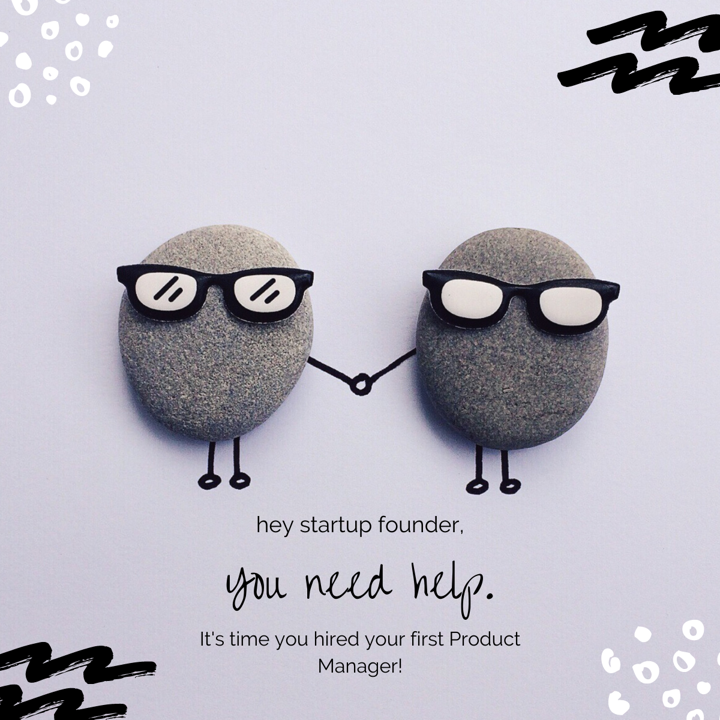In my first post in the 'Fractional PM' series, I explained 'What is a fractional Product Manager?'

Let's dive into why a startup founder should hire a fractional Product Manager.
Tell me, which startup founder are you?
The Do-It-Yourself-er
Let's say you're the co-founder of a startup. You came up with the idea and now you're running a business. You're also managing the team, fundraising, attending meetings, and trying to build products on the side. You’ve got this. You’re the founder, you know the customer, you’ve got the vision, you’ve hired the team. You don’t need help. It’s time for a little chat:
“How’s that MVP coming along?
Oh, it’s still not quite perfect?
How long before it’s perfect?”
Yeah...
“When are you going to set the strategy for the Eng team?
Oh, right after the fundraising call.
Which one?”
Um...
“When was your latest customer conversation?
Yeah....”
If any of that sounds familiar, you need a Product Manager to accelerate your time to market.
The ADD Founder
You’ve got a million ideas. They’re all great. This week’s idea is great. Next week’s idea is great. They’re all great. Lets build them all! If any of that sounds familiar, you need a Product Manager to help focus the team.
The I-Don’t-Do-The-Tech-Stuff Founder
Someone needs to talk to your Engineer team. If that sounds familiar, you need a Product Manager to bridge the gap between business priorities and technical output.
The Big-Picture-Strategy Founder
You’ve got a vision and you can sell it to investors, but when it comes to project management… things aren’t going so well. If that sounds familiar, you need a Product Manager to keep your teams executing efficiently.
Ok, you need a PM. Now what?
Let’s say you agree. You think, "Enough! I've got to add a Product Manager to offload some of this responsibility." Now what? Here are a few things to consider before jumping into a full-time hire.
Cost
You may not be able to afford a full-time Product Manager. The average salary of a Product Manager in Boston is $109,012 (according to Glassdoor). You could consider a remote US-based Product Manager but other cities aren't cheaper. So you decide to keep doing it yourself until the company has more money.
Engineering Bandwidth
You may not have enough Engineering capacity to support a full-time Product Manager. If your Engineering team is already spread too thin working on an existing roadmap, you're not going to realize a lot of value from adding a PM. Sure, they could reprioritize the backlog or work on a roadmap but they're not going to be shipping features until the Engineering team can take on more work.
Lack of Data
You may not have readily available metrics on user behavior, product usage, business KPIs, etc. If you're going to spend a few months setting this up, you may want to wait. You don't want employees blocked from doing their job.
Lack of Accountability
How are you going to measure your Product Manager? Who's going to evaluate their success? How are you going to know if you made the right hire?
Engineers can be evaluated by lines of code, Sales rep by deals closed, Customer Success on up-sell or retention metrics... but how are you going to measure your full-time PM?
A fractional PM can bridge the CEO to full-time hire
If you know that you need a PM to get to market faster but you’re not quite ready for a full time hire, then bringing in a fractional PM in the interim might be your best bet!
With a part-time PM you avoid the full-time cost, can scale up or down their involvement to match Engineering bandwidth, you can leverage your existing data, and they're experienced enough to bring accountability into the process to evaluate their own success for you.
This means you get products to market faster, your Engineering team is productive, your customers are heard, and you're effective and efficient with resources.
Bonus: A good fractional PM can also help with full-time hiring by writing a job description, sourcing candidates, and ultimately make the hire to replace them.
-----
What did you think? Leave a comment below.
